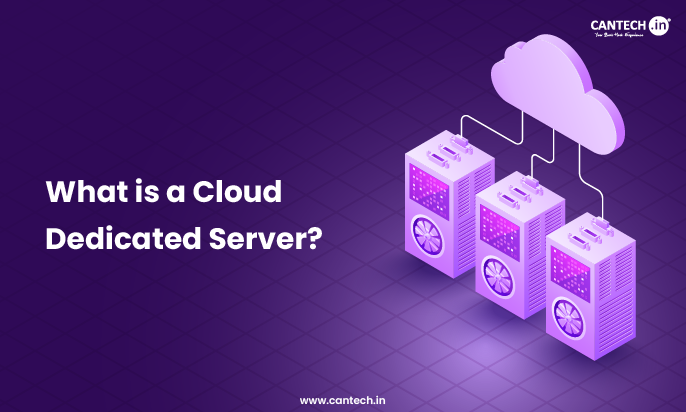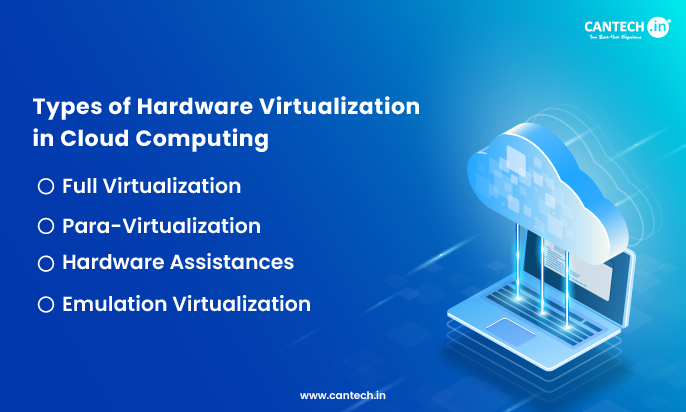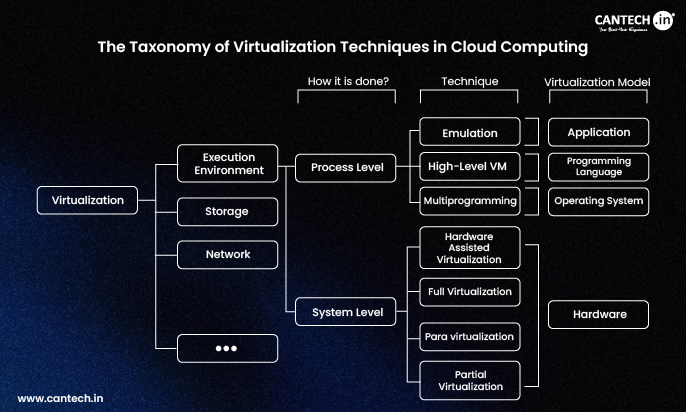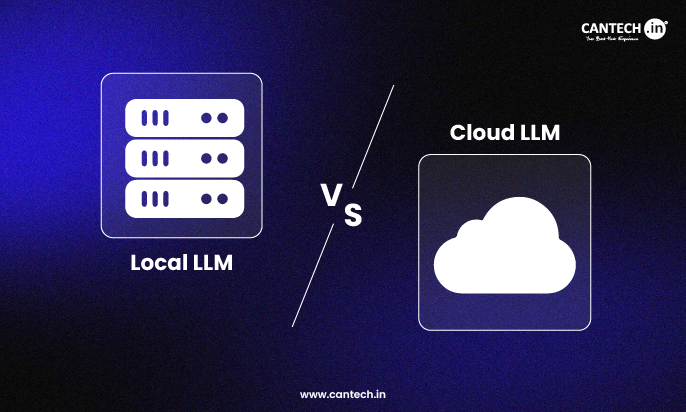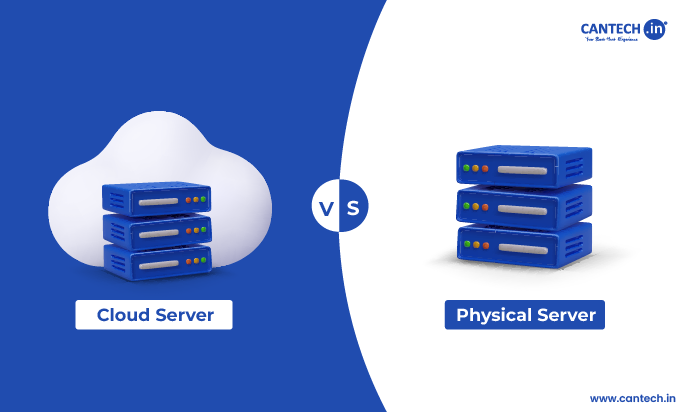With the world becoming increasingly digital-oriented, small start-ups and mid-sized enterprises are terribly dependent on online platforms, digital tools, and data-driven strategies. Cloud hosting is the central component of this digital infrastructure. However, what is cloud hosting?
Cloud hosting is a new form of web hosting that operates virtual servers on a physical server network. Cloud hosting spreads resources among a number of connected computers in contrast to conventional hosting, where the websites are hosted on a single physical computer. This guarantees optimum availability, scalability and efficiency.
Cloud hosting is not only a hosting solution to small businesses but an instrument of growth, cost-saving and digital agility. Using the appropriate cloud hosting services, small businesses are able to simplify operations, protect their data and still compete successfully in the current fast-paced world.
We will discuss in this blog the cloud hosting types, the advantages of cloud hosting as a small business, the types of cloud storage, and why it is essential to understand the models such as Infrastructure as a Service (IaaS), Platform as a Service (PaaS), Software as a Service (SaaS) and Backup as a Service (BaaS). We will also address the possibilities of public and private cloud and hybrid clouds, and the way they influence the cost effectiveness, scalability and collaboration.
Types of Cloud Hosting
It is always good to familiarize with what forms of cloud hosting exists that can be of benefit to small businesses before plunging into the advantages. The flexibility, performance, and control are determined with the help of these models:
Public Cloud
A third-party provider is a cloud hosted and managed. Businesses rent a shared pool of resources and servers and is thus a cost-efficient solution to startups and expanding businesses. AWS, Microsoft Azure, and Google Cloud are examples that are popular.
Pros: Low cost, scales, simple to install.
Cons: Shared resources can become an issue of compliance or privacy to sensitive sectors.
Private Cloud
A single cloud is assigned to a single business. It offers more control, privacy and security as opposed to public cloud hosting. The solution is appropriate in cases where the business deals with sensitive customer information, financial services or where the healthcare providers have strict compliance factors.
Pros: High security, full customization, compliance‑friendly.
Cons: More expensive than public cloud solutions.
Hybrid Cloud
A hybrid cloud is a combination of the ideal of both the public and the private cloud. With private cloud infrastructure, businesses may use sensitive data and continue enjoying the benefits of the public cloud (e.g. scalability and cost-effectiveness) in terms of general workloads.
Pros: Flexibility, cost optimization, better performance.
Cons: Requires careful integration and management.
The initial step in building a trusted digital foundation is understanding what kind of cloud best fits your business: public cloud, private cloud, or a hybrid cloud?
Explore our detailed guide blog on What is Hybrid Cloud.
Cloud Storage Types
Contemporary businesses depend on data. Various types of cloud storage have accessibility, security and scalability. The most typical backup and hosting-related choices are listed below:
- Block Storage – Stores data in fixed‑size blocks, perfect for databases and transactional workloads.
- File storage- This emulates the traditional file systems, which is suitable to shared contents, collaboration and structured documents.
- Object Storage – Stores data as objects with metadata, ideal for large unstructured datasets such as images, videos, and backups.
- Small companies frequently combine these types of storage to accommodate all the backup-as-a-service (BaaS) to real-time collaborative tools.
Key Service Models: IaaS, PaaS, SaaS, and BaaS
Listing all the benefits of cloud hosting is more than mere hosting of websites. A set of models of modern cloud services that covers various business needs is as follows:
Infrastructure-as-a-Service (IaaS)
IaaS is the computing resources that are virtualized in the shape of servers, networks and storage, which are not necessitated by the use of costly hardware. Cloud providers also offer the small firms the chance to on-demand infrastructure.
Example: Web based store running on virtual machines that are scalable.1. Infrastructure as a Service (IaaS)
IaaS offers virtual computing services such as servers, networks and storage. Cloud hosting providers do not require a small business to buy expensive hardware but to rent infrastructure on demand.
Scenario: Operation of an online store using scalable virtual machines.
Platform as a Service (PaaS)
PaaS gives developers the opportunity to create, test and deploy applications without any concern of managing infrastructure. It incorporates tools, structures and middleware required to accelerate innovation.
Use case: Starting up a company-specific application at low IT cost.
Software as a Service (SaaS)
SaaS is the provision of ready-to-use software applications via the internet. Email platforms, CRM software and cloud-based accounting software do not need to be installed and maintained by small businesses.
Example: Google Workspace, Salesforce, or QuickBooks.
Backup as a Service (BaaS)
BaaS provides automated backup cloud storage that is able to store critical business data securely and easily recoverable. In the case of small businesses, this will provide data security against theft, ransom attacks, or unintended data loss.
Example: Cloud-based backup solutions like Acronis or Carbonite.
Benefits of Cloud Hosting for Small Businesses
Now that we’ve covered the basics, let’s explore the benefits of cloud hosting and why small businesses should seriously consider making the switch.
1. Cost Efficiency
Budget can be the single largest constraint for small businesses. Conventional servers are hard to upgrade and costly to maintain and set up. With cloud hosting, businesses pay only for the resources they use, ensuring cost of cloud server is aligned with real demand.
Providers offer different web hosting plans in which businesses can scale services without having to overspend. This low cost allows the capital to be used in marketing, product development or talent acquisition.
2. Scalability and Flexibility
The development is not predictable, particularly in startups. In one month your site might have average traffic, and in another month a viral campaign might bring traffic in the thousands.
Cloud hosting services are unsurpassed in terms of scalability and flexibility; the resources can be scaled up or down in real time. This guarantees a steady performance without interruption even during the high traffic spurts.
This flexibility is important since small businesses can have varying requirements and cloud hosting is the option of choice as opposed to traditional servers.
3. Enhanced Collaboration
Small businesses have now moved to remote work and distributed teams. Cloud hosting enables a higher level of collaboration since the employees can access data and applications and projects anywhere and with an internet connection.
Teams are able to work together in real-time, whether through SaaS products such as Slack and Trello or shared cloud storage options. This enhances productivity, lessens delays and encourages innovation.
4. Enhanced Backup and Data Security
One of the most useful assets of the small business is data. System crashes or cyberattacks can be disastrous when it comes to the loss of important information. Back up as a service (BaaS) and backup cloud storage are where it comes in.
Automated backups, encryption and disaster recovery systems would enable the businesses to sleep knowing that their data is secure and recoverable. Moreover, the decision between the private and hybrid cloud may serve as the added protection.
5. Performance and Reliability
Reliability is one of the largest advantages of cloud hosting. Cloud hosting offers high uptime by distributing workloads across multiple servers. In the event of a server failure, the workload is distributed among the remaining servers.
To small businesses, lost time translates to lost income and lost reputation. To increase customer satisfaction and search performance, reliable cloud hosting providers make sure your site and applications will operate without issues.
6. Access to Advanced Technology
Cloud hosting provides small businesses with the opportunity to access enterprise level technology previously only available to multinational companies. Small businesses can be able to compete on a larger scale without huge IT budgets using AI-powered analytics and automated backups.
7. Sustainability
Cloud hosting is also eco-friendly as compared to conventional on-premise servers. Providers optimize the use of resources in data centers reducing the use of energy. This is in line with corporate social responsibility and sustainability in the case of small business.
Choosing the Right Cloud Hosting Providers and Plans
The choice of cloud hosting providers is a key to success. Some of the factors are as follows:
- Web hosting plans: Compare features, bandwidth, and support to make sure it is cost effective.
- Security Capabilities: Find firewalls, SLL, and compliance support.
- Scalability: Select providers with upgrades and downgrades.
- Support Services: The small business with a small number of IT staff require 24/7 technical support.
Large-scale cloud services such as AWS, Google Cloud, Microsoft Azure, and hosting companies that provide businesses with a wide choice of specialized cloud hosting services have become popular.
About Cloud Hosting and the Future of Small Businesses
Cloud hosting is not only where your data is stored, but it is about business future proofing. Adopting cloud enables a small business to remain competitive, agile and innovative without stretching its budget limits.
In the form of cloud hosting (public, private, hybrid) to more advanced approaches, with IaaS, PaaS, SaaS, and BaaS, the cloud allows a business to scale quickly, work in a collaborative manner, and store data with a sense of security.
Industry-Specific Benefits
Cloud hosting is not a universal solution, but it fits industries:
- E-commerce: Handles seasonal spikes and integrates with SaaS tools for sales management.
- Healthcare: Turns to using the private cloud as a compliance measure with patient data security.
- Education & Startups: Rely on SaaS and PaaS for collaboration and innovation.
- Finance: Uses hybrid cloud to strike a balance between compliance and cost-effectiveness.
With the right kind of cloud hosting matched with industry requirement, small businesses can grow faster.
Compliance and Data Protection
Small businesses comply to data regulations like GDPR, HIPAA, or PCI DSS. Cloud hosting service providers can facilitate compliance with the following:
- Data encryption and secure access.
- Geographic redundancy for legal requirements.
- Built-in disaster recovery via backup as a service (BaaS).
- Compliance guarantees customer credibility and helps businesses to save money and time spent on penalties.
Disaster Recovery and Business Continuity
Operations can be disrupted by natural disasters or hardware failures or even a cyber-attack. In traditional hosting, recovery is costly and time consuming.
The benefits that companies have with cloud hosting services include:
- Backups through an automated backup cloud.
- Rapid disaster recovery with minimal downtime.
- Business continuity planning through hybrid or multi-cloud setups.
- This consistency aids small enterprises to retain the confidence of their customers and safeguarding their sources of income.
Global Reach and Customer Experience
Global accessibility is one of the advantages that are left unnoticed in cloud hosting. Public cloud infrastructure is usually distributed across data centers across the globe, thereby minimizing latency and providing fast load times to websites.
In the case of small businesses, this implies enhanced customer experiences, higher SEO rankings and reach into global markets without the need to install local servers.
Integration with AI and Emerging Tech
Small businesses using cloud hosting also can access the emerging technologies such as:
- AI and machine learning (analytics, chatbots).
- IoT (real-time data from devices).
- Automation tools (workflow optimization).
Future of Cloud Hosting for Small Businesses
The future of cloud hosting services is being dynamic with:
- Edge Computing: Bringing data closer to users for faster responses.
- Serverless Architecture: Applications that do not control servers.
- Green Data Centers: environmentally-friendly hosting that grows sustainable businesses.
Small businesses can gradually embrace such innovations by selecting the appropriate web hosting engagements and remain at top of market rivals.
Choosing the Right Cloud Hosting Providers
Consider the following while choosing cloud hosting providers:
- Web Hosting Plans: Scalable plans at transparent prices.
- Security Features: SSL, firewalls, and compliance support.
- Support Services: 24/7 assistance for businesses without in-house IT.
- Scalability: Capability to cope with traffic surge.
Conclusion
The benefits of cloud hosting are indisputable for small businesses that struggle to cope with the pressures of growth, technology adoption, and competition. Cloud hosting can be characterized as the backbone of current business infrastructure due to its benefits, including cost efficiency, scalability, flexibility, improved collaboration, and robust data security.
By selecting the appropriate cloud hosting services and aligning them with specific business objectives, small enterprises can create a powerful digital environment. The cloud has unlimited potential, whether on a public cloud to gain a cheaper price or on a private cloud to gain control or on a hybrid cloud to find a balance.
Ultimately, it is not only a matter of data storage and running websites, it is a matter of letting small businesses dream, faster and accomplish more with fewer resources through cloud hosting. The future is the cloud and as far as small business is concerned, the ride has just started.

